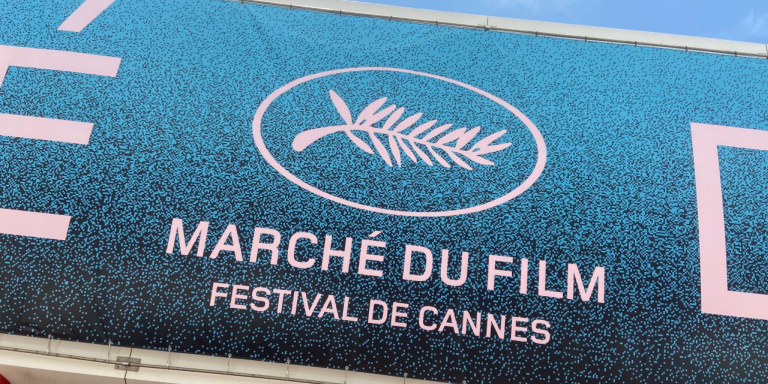
The Cannes Film Market, the commercial platform of the Festival, was created by Emile Natan in 1959 to allow film industry professionals (producers, distributors, exporters, importers) to meet in a dedicated place. It offers conferences, film selections and events where participants can discover new technologies and the latest trends in the film industry. This year, artificial intelligence was at the heart of the debates.
When we talk about artificial intelligence in the world of cinema, we immediately think of the films dedicated to it: Space Odyssey, AI Artificial Intelligence, Matrix, Terminator… Beyond being the theme of some films, AI is increasingly used during their creation: project assistance, development of subtitles, dubbing, special effects, aging or rejuvenation of faces…
Predicting the success of a film project with AI
During the day dedicated to new AI tools and new technologies such as the XR, an experiment took place: producers came to present their film project, a series of numbers appeared very quickly on a screen placed behind them, estimating the potential success of the film presented. Sami Arpa, CEO of Largo.ai, a start-up based in Switzerland, then commented on these results. The company publishes artificial intelligence software that aims to support producers, distributors, directors, writers, financiers, actors and actresses in their decision making process. Sami Arpa explains:
“First of all, it is an assistance tool, artificial intelligence does not replace the creative process. Producers or distributors can use it to analyze their project at all stages: from development to distribution. For example, at the pre-production stage, they can upload their film script into the system and the system automatically provides them with information about the content, the chosen cast, and also potential box office or streaming platform results or the type of audience that might be interested in the film.”
The AI was trained on 60,000 European and American films, across all genres, whether they were well received by critics, audiences or not. Screenplays that never made it to film were also included in the training to make the AI as efficient as possible. Its results are close to 80% efficiency, according to Sami Arpa.
Sami Arpa, a computer scientist but also a filmmaker, understood the potential of this innovation by observing what already exists at platforms. “Amazon and Netflix are using a lot of data, innovation and it is disrupting the industry. This data and technology is not available to others. So that was our mission: to create technology that is available to the entire industry.” He said in an interview with DNA:
“This is an important issue. You can have good data, but not the right technology, or the other way around. Either way, it doesn’t help. Big studios like Warner Bros or Sony have ‘good’ data, but they don’t have the technology of a Netflix. Independent producers have neither the data nor the tech. We have both. To feed our technology, we use public data (budget, casting, box office results). We also work with private partners who offer us their data. And finally, we generate our own data; we have a VOD service and TV channels, Sofy.tv.”
Hundreds of producers now use Largo.ai’s software, which in one year has analyzed about 1,000 projects.
The CNC helps develop AI
In France, the National Center for Cinema and the Moving Image (CNC) encourages the use of AI and new technologies, and has also introduced assistance for visual effects and training support. Vincent Florant, director of digital at the CNC, states:
“It’s an accompaniment in the risk, because the projects are often quite risky and sometimes take time to become profitable.”
The CNC devotes eight million euros each year to innovative and technical projects and ten million euros to production.
Translated from L’intelligence artificielle s’invite au Marché du film de Cannes









